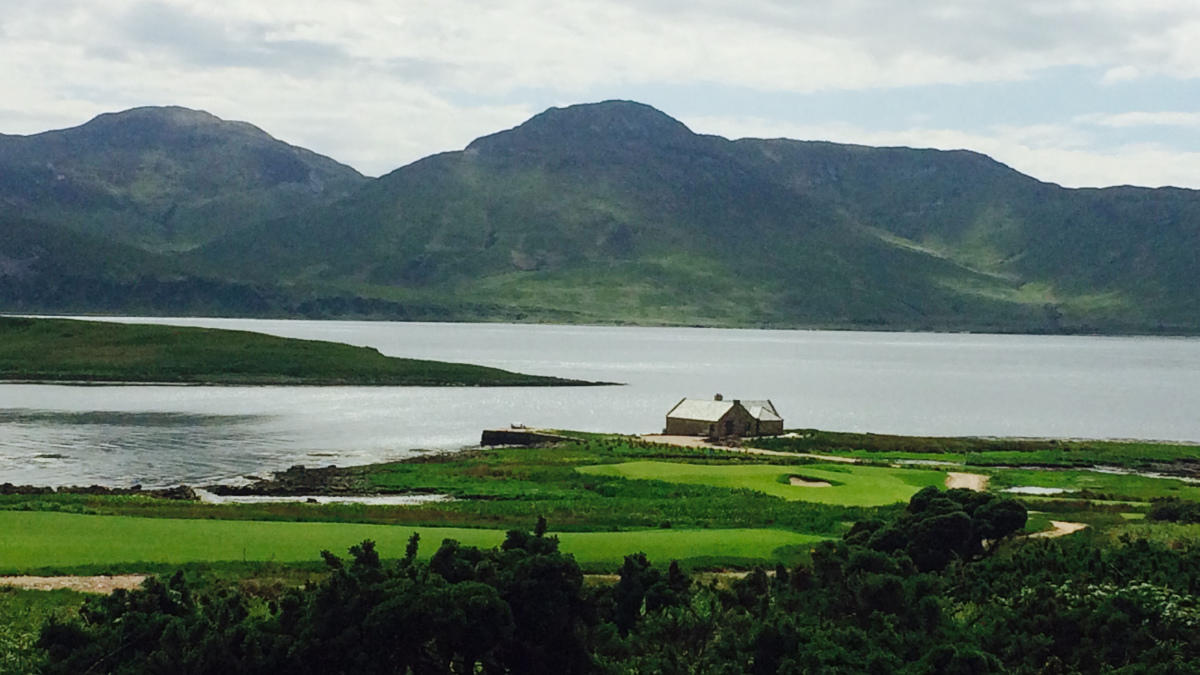- Homepage
- News and Features
- What are the rules in Scotland for greenkeepers?
What are the rules in Scotland for greenkeepers?

UPDATE 12 JANUARY 2021
As of January 2021, Scotland is the only country in the United Kingdom where golf can still be played.
Despite this, the latest guidance produced by BIGGA relating to safe working practices throughout the UK remains relevant and should be consulted when organising working practices and staffing levels.
Scottish Golf has provided additional information in its Updated COVID-19 Guidance information leaflet, with a sample of items relating specifically to greenkeepers mentioned below. This information was produced to provide safe working and playing environments alongside the Scottish Government's Phase 3 relaxation of restrictions and procedures are subject to change, so check here for the latest information.
For golf clubs to continue operating their course they should ensure that:
- All activity is consistent with current guidance on health, physical distancing and hygiene - facilities should also make sure they can adapt to changes in guidance at short notice.
Clubhouse, equipment and course set-up
- Clubhouse and sports facilities that provide catering and bar services can operate providing they adhere to Scottish Government guidance appropriate to the protection level in which they are operating.
- Start facilities can operate, providing all physical distancing measures are adhered to and appropriate hygiene measures are put in place.
- Professional/retail shops should ensure they adhere with the current guidelines for your local authority's current protection level.
- Other facilities, such as driving ranges, swing studios and club fitting, should be operated in line with the guidelines for your local authority's current protection level.
- Risk assessment should be carried out and documented
- Physical distancing - the 2m rule applies to all these settings. Facilities need to adapt to encourage physical distancing.
- Workforce - ensure the relevant workplace guidancee is followed for staff and any existing health and safety advice is maintained and aligned.
- Face coverings - golf clubs should ensure that golfers wear face coverings when indoors, the only exception being when using hospitality services.
- Golf clubs may offer indoor hospitality subject to adhering with guidelines for your local authority's current protection level with physical distancing, increased hygiene routines, controls on the number of people and adherence to curfewss. More detail is available in the government's tourism and hospitality guidance.
ORIGINAL POST 16 OCTOBER 2020
Following the First Minister’s latest update in Parliament on 7 October, Scottish Golf worked with sportscotland and the Scottish Government to obtain further clarity about the new restrictions being implemented across Scotland and how these might impact private member clubs.
On-course golf activities can continue under current Phase 3 Guidance, with up to four players from four different households allowed to participate together.
The key changes announced were effective from 6pm on Friday 9 October 2020 are summarised below:
- Pubs and licensed cafes in five Scottish health board areas – Greater Glasgow & Clyde, Lanarkshire, Ayrshire & Arran, Lothian and Forth Valley – must shut to all but takeaway customers.
- In other parts of Scotland not mentioned above, pubs, bars, restaurants and cafes can operate from 6am to 6pm but cannot serve alcohol indoors during that time. These premises can sell alcohol outdoors until 10pm.
- Rules on gatherings remain the same with a maximum of six people from two households permitted.
The following extracts are taken from the 23 September update of Scottish Golf’s guidance to golf clubs about how to operate during the coronavirus crisis. We’ve selected some of the most relevant items for greenkeepers, but you can view the entire document online here.
Clubhouse, equipment and course set-up
- Workforce – ensure the relevant workplace guidance is followed for staff and any existing health and safety advice is maintained and aligned.
- Buggies, electric or pull trolleys, clubs should not be available for hire unless safe sanitising practices can be guaranteed.
- Where practice greens are open, the holes should be filled in, covered, or the cup raised and procedures for use should be considered, for example giving priority of use to the players in the next group due to tee off
- Signage should be erected to reinforce physical distancing rules
- Hand sanitisers should be made available
- Bins may be reintroduced as long as strict sanitisation and staff safety can be maintained
- Ball washers, rakes, benches, divot boxes and non-essential furniture should be removed from the course. Where such fixtures are permanent, they should be taken out of use.
- Holes/cups should be altered to facilitate easy retrieval of golf balls
The Scottish Government’s advice for the opening of sports and leisure facilities with physical distancing and hygiene measures provides further guidance to protect workers.
Other than for budgeting and other planning by the course manager, it is unlikely that a member of a greenkeeping team will be able to work from home. With that in mind, the Scottish Government expects as a minimum:
- Health factors to be considered in any phasing of who returns to work, with employees living in at risk households only expected to return when new safe working environment measures have been implemented and a return to work is consistent with individual medical advice
- New sport and leisure facility arrangements to be tested and modified through collaboration between employers, facility operators and workers
- Facility operators to take travel to work and childcare considerations into account indecisions around a phased restart
- Keeping in regular contact with furloughed staff
Mandatory face coverings
A face covering must be worn by all people when in indoor communal areas, except where an exemption applies or when there is a ‘reasonable excuse’ not to wear a face covering such as eating or drinking and exercising/undertaking physical activity. Or if you have a health condition or you are disabled, including hidden disabilities such as autism, dementia or a learning disability.
Personal Protective Equipment (PPE)
Workplaces should use PPE consistent with local policies and in line with measures justified by a risk assessment. Both the Scottish Government and the Health and Safety Executive (HSE) recommend a risk-based approach focused on a hierarchy of control which seeks to eliminate risks, combat risks at source, adapt workplaces to individual needs, ensure adequate staff training around process to manage the risk and then use PPE where required. Where PPE is deemed necessary, an adequate supply and quality must be maintained which is provided free of charge to workers and which must fit properly.
Test and protect
People who have tested positive for the virus will need to self-isolate for a minimum of 10 days. NHS contract tracers will interview them and get in touch with people they have been in close contact with and tell them they must self-isolate for 14 days. If your employees are informed by a contact tracer that they should isolate, you should help them to do so straight away.
A close contact is defined as:
- Those that are living in the same household as a case
- Face to face contact with a case for any length of time within 1 metre of a case
- Extended close contact within 2 metres for more than 15 minutes with a case
Advice for employers and facility operators on helping staff who need to self-isolate is also available.
Apprentices can return to work at the same time as their co-workers. For specific concerns regarding the safe return to work for apprentices there is information and support and apprentices can speak to an advisor directly on 0800 917 8000. Workers who are at a higher risk, shielding or who live with someone who is shielding, should not be compelled to work and facility operators should make arrangements to ensure those workers are not disadvantaged dur to obeying medical advice. Facility operators should explore measures such as suspending the normal application of sickness or disciplinary procedures related to attendance in these cases.
Head to the Scottish Government website for the complete guidance for sport and leisure facilities.
Author

Karl Hansell
Karl has been head of communications for BIGGA since March 2016. His duties include editing the monthly Greenkeeper International magazine, in addition to other communications activities for the association.

